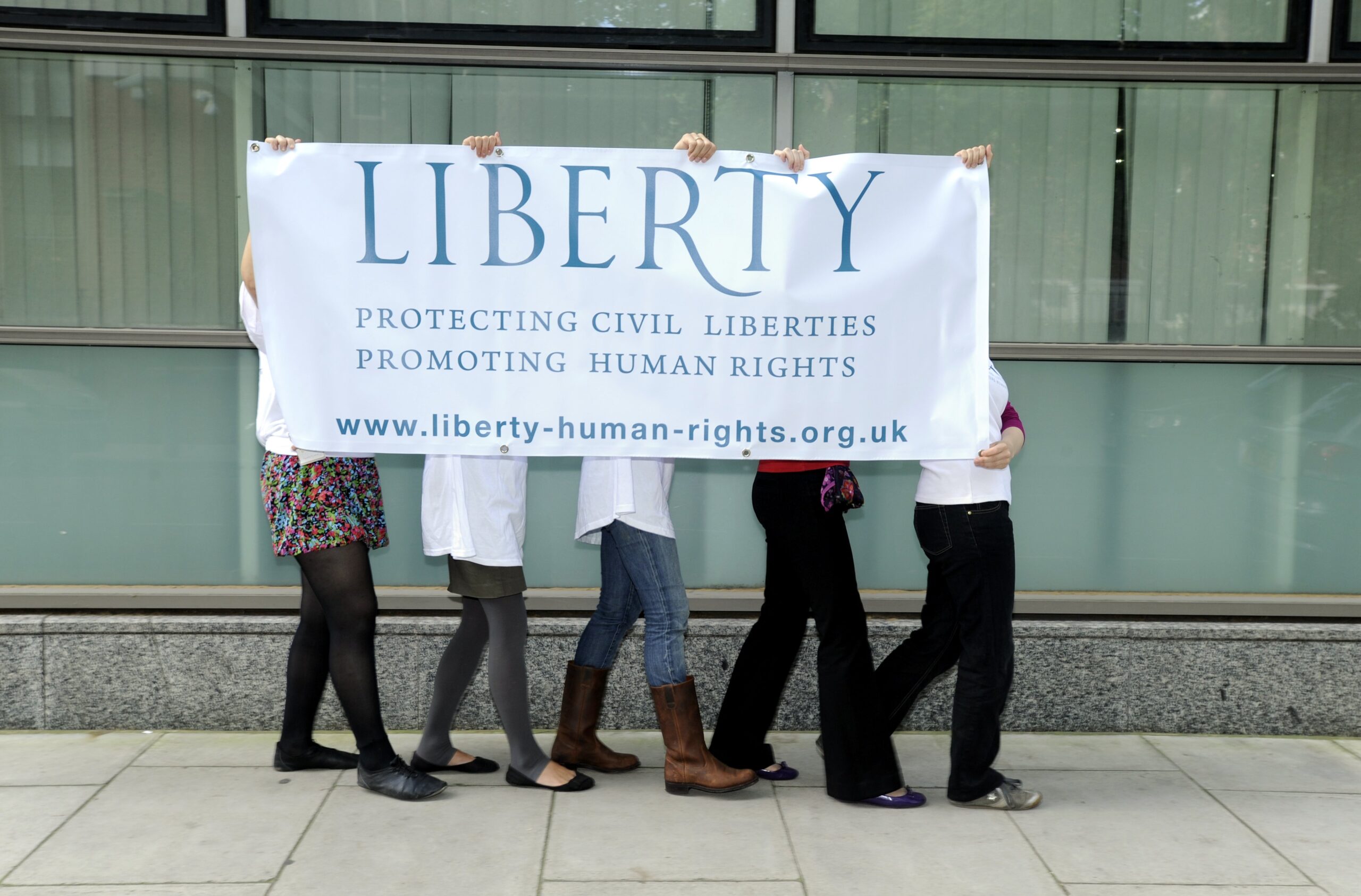
Photo: Liberty
At Liberty to lobby
Liz Hill’s suggestion that the arts sector needs a champion like the campaigning organisation Liberty has been met with enthusiasm by many arts professionals. So what are the secrets of Liberty’s success? Mairi Clare Rodgers explains.
Liberty was borne out of the Hunger Marches of the 1930s – marches that took place in a climate of economic crisis, social unrest and the spread of fascism, and under the long shadow of international conflict. After witnessing brutal police attacks on peaceful protestors, Ronald Kidd brought together politicians, artists, lawyers and writers under the banner of defending ‘the whole spirit of British freedom’ and formed the National Council for Civil Liberties.
Today Liberty still fights to protect civil liberties and promote human rights, a task that remains as relevant today as it was then. In this Government’s term alone we face the introduction of sinister secret courts and proposals for the so-called ‘Snoopers’ Charter’. Attacks on our Human Rights Act, that enshrines the rights of ordinary people in UK law and allows us to hold the powerful to account, have also increased. Liberty currently campaigns on all these issues, as well as lobbying for the introduction of same-sex marriage and fighting for the reform of our unfair extradition system. We work across many fronts – through policy work, undertaking groundbreaking test case litigation, parliamentary lobbying and high profile media campaigns.
The ‘war on terror’ has had a profound effect on the context of our work and created the need for one of our most successful campaigns. Our award-winning ‘Charge or Release’ campaign used human rights arguments to show that Government plans to extend the pre-charge detention limit from 28 days to 42 were deeply flawed, unjust and counterproductive. Liberty is a membership organisation and the active support of our members was crucial to this success. They lobbied MPs and Peers, wrote to local papers and convinced friends and family. In doing so, they helped build a consensus of support for the campaign and in 2008 the plans were dropped.
This would be our advice for setting up a new campaigning organisation:
• Set yourself clear and concrete goals: What does success look like? What are your primary aims?
• Harness the power and passion of your members: Help them to identify easy and clear ways that they can assist your campaigning.
• Embrace social networking: Although clicktivism isn’t an end in itself, the Internet is an invaluable way of getting your message seen by a wider audience.
• Don’t be afraid to tackle myths: When the Government initially drafted plans for ID cards, nearly 80% of the population supported the scheme. But years of effective campaigning have educated the public about the dangers and costs of the proposals. Six years later, only 25% of the public thought that the Government had made a case for the scheme that justified its cost.
• Connect with other organisations in the same sector. Working together on an issue can often be more effective than trying to make a lone voice heard.
Mairi Clare Rodgers is Director of Media Relations for Liberty
Liberty helps protect our fundamental rights and freedoms, and the support of its members makes all its work possible.
Join the Discussion
You must be logged in to post a comment.